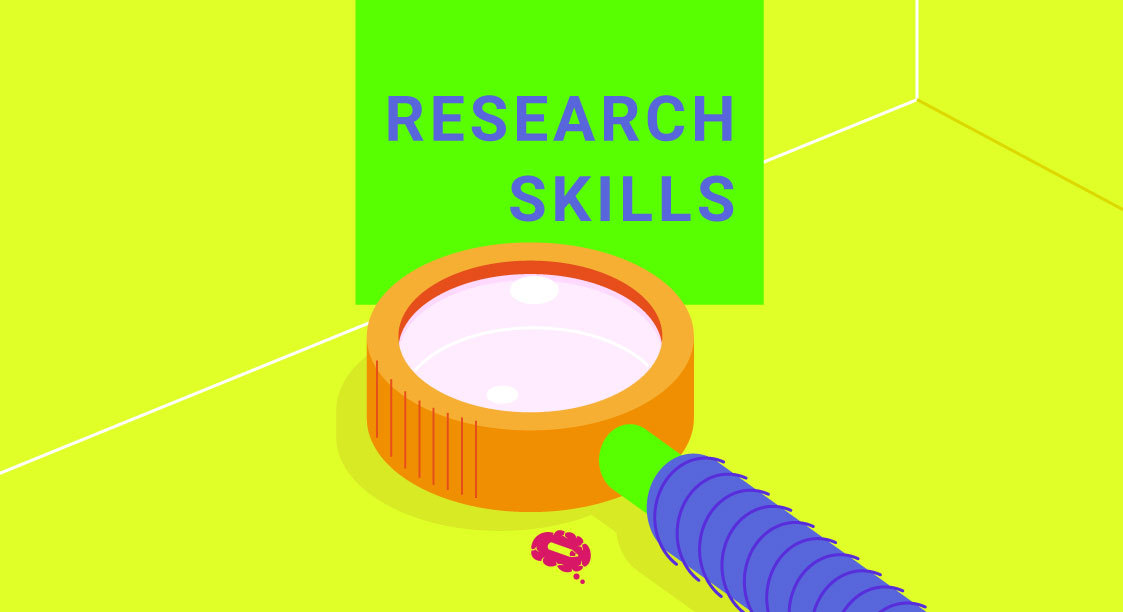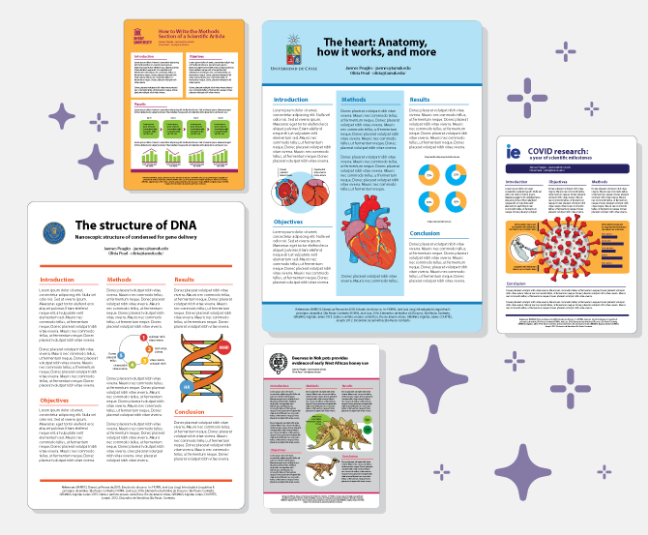Research Skills are a cornerstone of success in science, encompassing the abilities necessary to navigate knowledge acquisition and extensive research. These skills not only facilitate the discovery of new information but also contribute to them being thoroughly analyzed and implemented. Let’s delve into critical research skills and see how they form the backbone of a thriving scientific career.
Understanding The Essence Of Research Skills
Research skills encompass the methodologies and competencies employed to gather, assess, and synthesize information effectively. These skills go beyond mere data collection; they involve critical thinking, reliable source identification, active listening, and proficient time management.
Related article: Mastering Critical Reading: Uncover The Art Of Analyzing Texts
Research skills constitute the backbone of any successful inquiry process, serving as a comprehensive toolkit that extends beyond the superficial gathering of information. Beyond the initial data accumulation phase, these skills embody a multidimensional approach.
Research skills further encompass active listening — an often underestimated yet pivotal aspect — enabling researchers to glean valuable insights from conversations, lectures, or expert discussions. This skill ensures a holistic understanding of the subject matter, enriching the depth of information gathered and enhancing the overall research process.
The Merits Of Proficient Research Skills

The benefits of cultivating strong research skills extend beyond the individual researcher; they reverberate throughout academic and professional realms. One of the primary advantages is the empowerment to make informed decisions based on a thorough understanding of the available data. Researchers with honed skills can navigate through vast datasets with efficiency, identifying patterns and correlations that might elude those with less developed research acumen.
Moreover, these skills are instrumental in fostering innovation. The ability to synthesize information from various sources, coupled with critical thinking, allows researchers to envision new possibilities and alternative approaches to longstanding problems. This capacity for creative thinking is a hallmark of individuals with advanced research skills and is often the driving force behind groundbreaking discoveries and advancements in scientific knowledge.
In the professional sphere, individuals with strong research skills are valuable assets to organizations. Their ability to gather, evaluate, and apply information contributes to effective problem-solving and decision-making. In industries driven by technological advancements and data-driven insights, research skills are increasingly becoming a sought-after and indispensable trait in employees.
Cultivating Critical Thinking In Research Endeavors
Critical thinking is the cornerstone upon which the edifice of scientific inquiry stands. Beyond merely gathering information, it involves a systematic approach to analyzing, evaluating, and interpreting data. This skill equips researchers with the ability to discern patterns, spot anomalies, and derive meaningful conclusions from complex datasets. Moreover, critical thinking in research facilitates the identification of potential biases, ensuring objectivity and rigor in the investigative process. It enables scientists to challenge established theories, fostering an environment of intellectual curiosity and continual exploration.
Also read: How To Avoid Bias In Research: Navigating Scientific Objectivity
Furthermore, honing critical thinking skills is essential in adapting to the rapidly evolving scientific landscape. As new information emerges and paradigms shift, researchers equipped with strong critical thinking abilities are better poised to adapt to changes, integrate new knowledge, and refine their approaches.
Why Critical Thinking Is Paramount In Research
In the realm of scientific inquiry, critical thinking serves as the linchpin for discerning between reliable and fallacious information. It is the foundation for formulating hypotheses, design experiments and draw conclusions. By employing critical thinking skills, researchers can evaluate the validity of claims, weigh evidence objectively, and arrive at conclusions rooted in evidence-based reasoning. This approach safeguards against premature conclusions and ensures that scientific findings are based on robust analysis and thorough scrutiny.
Moreover, critical thinking promotes intellectual humility, encouraging researchers to remain open to alternative viewpoints and possibilities. It fosters a culture of constructive skepticism, wherein scientific claims are subject to continuous scrutiny and refinement. This aspect of critical thinking is pivotal in mitigating the influence of personal biases and fostering a collective pursuit of objective truth within the scientific community.
Related article: Thesis Conclusion: Making Your Research Paper Outstanding
Sharpening Critical Thinking Abilities
Improving critical thinking skills is an ongoing endeavor that involves deliberate practice and exposure to diverse perspectives. Engaging in activities that challenge assumptions, such as analyzing conflicting viewpoints or participating in debates, can sharpen critical thinking abilities. Additionally, fostering a habit of continuous learning and staying abreast of developments in various scientific domains can broaden perspectives, enhancing the ability to approach problems from different angles.
Moreover, encouraging interdisciplinary collaboration and engaging in discussions with peers from varied scientific backgrounds can stimulate critical thinking. Exposure to alternative methodologies and problem-solving approaches cultivates adaptability and a more nuanced understanding of complex scientific issues.
Navigating Reliable Sources In Scientific Inquiry
The art of identifying reliable sources is a skill that requires meticulous evaluation and discrimination. Apart from traditional peer-reviewed journals and reputable publications, researchers must discern the authenticity of online sources, considering factors like author expertise, publication credibility, and potential biases. Furthermore, acknowledging the significance of preprint articles while discerning their limitations is pivotal in staying updated with the latest scientific developments.
Criteria For Reliable Sources
Developing a keen eye for distinguishing credible sources from unreliable ones is crucial. Encouragingly, initiatives promoting media literacy and critical evaluation of sources are gaining traction, empowering individuals to navigate the digital landscape more discerningly.
Reliable sources in scientific research adhere to stringent criteria, embodying credibility, accuracy, objectivity, and relevance. Peer-reviewed journals, known for their rigorous editorial and review processes, serve as gold standards in academic research. Additionally, reputable institutions and recognized experts within specific scientific fields contribute to the authenticity of information.
Understanding the underlying criteria for determining source reliability allows researchers to make informed decisions about the veracity and applicability of the information they encounter. This discernment, crucial in an era flooded with information, is fundamental to upholding the integrity of scientific inquiry.
Discerning And Assessing Reliable Sources
Developing the ability to discern credible sources involves a multifaceted approach. Understanding the context in which the information is and cross-referencing it with multiple reliable sources adds layers of validation, ensuring the reliability and accuracy of the information gathered.
Furthermore, distinguishing between primary and secondary sources aids in the assessment process. While primary sources offer firsthand information or original research findings, secondary sources interpret and analyze primary data. Recognizing the nuances between these sources is pivotal in grasping the depth and breadth of scientific information.
Harnessing The Power Of Search Engines In Research
In the digital age, search engines serve as gateways to an expansive pool of information. Leveraging these tools efficiently necessitates familiarity with advanced search techniques. Utilizing specific search operators, employing filters, and refining search queries enable researchers to access targeted and relevant information swiftly. Moreover, being mindful of the credibility of the websites accessed via search engines ensures the reliability of the gathered data.
Despite the convenience offered by search engines, researchers must approach the results with a critical lens. Verifying the sources’ credibility and cross-referencing information from various reputable sources remains imperative. Search engines, while valuable, are tools that require adept navigation to extract credible and pertinent information effectively.
Maximizing Search Engine Efficiency
Understanding the nuances of different search engines tailored for scientific research, such as PubMed, Google Scholar, and Scopus, can significantly enhance the efficiency of the research process. Each search engine has unique functionalities and focuses, catering to specific scientific disciplines or types of information. Familiarizing oneself with these platforms and their features empowers researchers to optimize their search strategies and access specialized resources pertinent to their field of study.
Related article: The Importance of Scholarly Sources: How to Find and Evaluate
Moreover, utilizing advanced search parameters, such as Boolean operators or specific filters, allows researchers to refine their searches and access highly targeted information. Learning and applying these techniques enhance the precision and relevance of the obtained results, streamlining the research process and saving valuable time.
Active Listening: A Crucial Research Skill
Active listening extends beyond the conventional perception of listening; it involves a focused and deliberate effort to comprehend and assimilate information effectively. During the research process, active listening plays a pivotal role, particularly when gathering insights from expert discussions, interviews, or academic lectures. It demands undivided attention, keen observation, and an open-minded approach to absorb the nuances and key concepts communicated by the speaker.
Furthermore, active listening isn’t solely about hearing words; it encompasses deciphering underlying meanings, interpreting tone and context, and probing for additional information. This skill enhances the depth and quality of information garnered, ensuring a more holistic understanding of the subject matter.
Engaging In Active Listening During Research
Researchers can refine active listening skills by actively engaging in discussions, seeking clarification when necessary, and taking comprehensive notes. Encouraging dialogue and posing pertinent questions fosters a deeper engagement in the information communicated. Additionally, employing techniques such as summarizing key points or paraphrasing to confirm understanding promotes effective communication and comprehension.
Moreover, employing active listening skills aids researchers in identifying underlying implications and nuances in conversations. It contributes to the extraction of invaluable insights and perspectives, enriching the research process and broadening the scope of information gathered.
Time Management: A Prerequisite For Effective Research
Time management skills are indispensable for researchers seeking to optimize their productivity and efficiency. Successful research requires careful planning and allocation of time for various research phases, including data collection, analysis, experimentation, and documentation.
Efficient time management involves setting realistic goals, establishing priorities, and adhering to structured timelines. Breaking down larger research tasks into manageable segments not only prevents overwhelm but also ensures a systematic approach towards achieving milestones.
Also read: Time Management for Researchers: A Comprehensive Toolkit
Efficient Time Management Strategies
Adopting strategies like creating timelines, setting deadlines for specific research milestones, and maintaining a structured schedule helps researchers stay focused and organized. Furthermore, allocating dedicated time slots for research activities prevents procrastination and promotes consistent progress.
Moreover, embracing tools and techniques that aid in time management, such as calendar applications, task management software, or productivity frameworks like the Pomodoro Technique, can significantly enhance efficiency in research endeavors.
Create Scientifically Precise Infographics Effortlessly
For scientists seeking to enhance the presentation of their research, it’s crucial to go beyond just the depth of data. Readers often gravitate towards visual content, allowing them to grasp concepts more quickly. With Mind the Graph, you can access a vast library of scientifically accurate figures spanning various topics. Sign up and create compelling infographics in minutes, elevating the quality of your research papers.

Subscribe to our newsletter
Exclusive high quality content about effective visual
communication in science.





